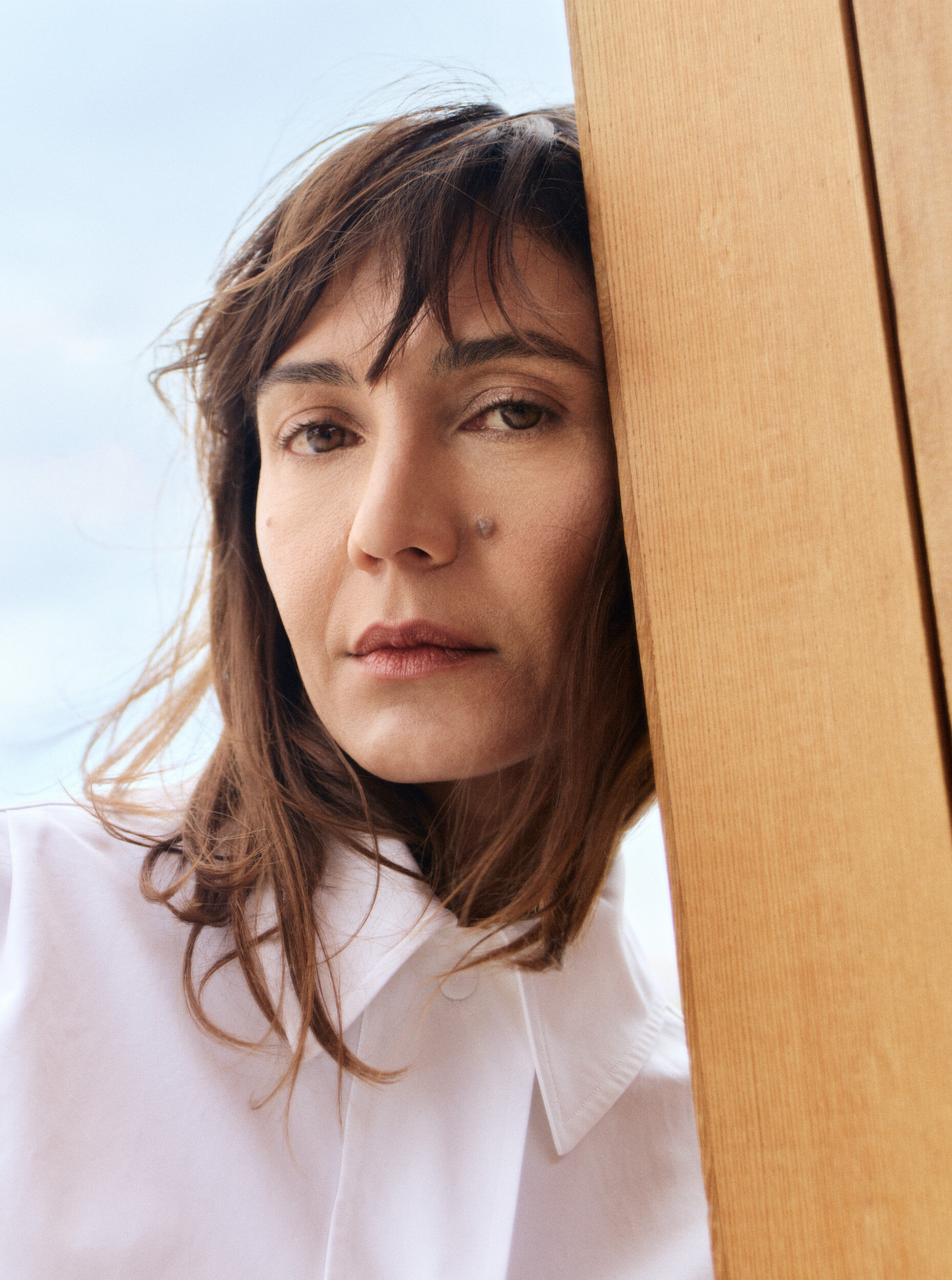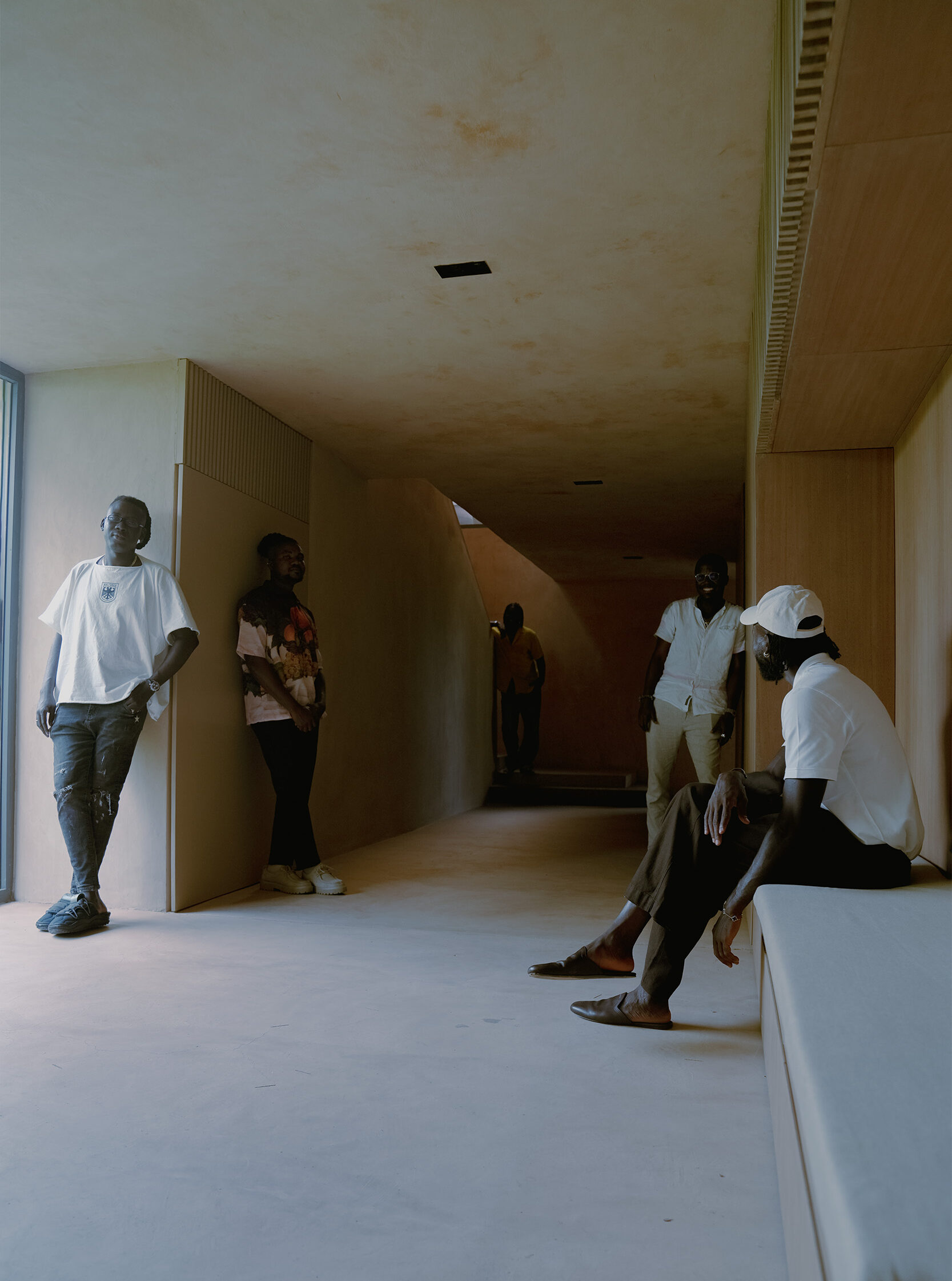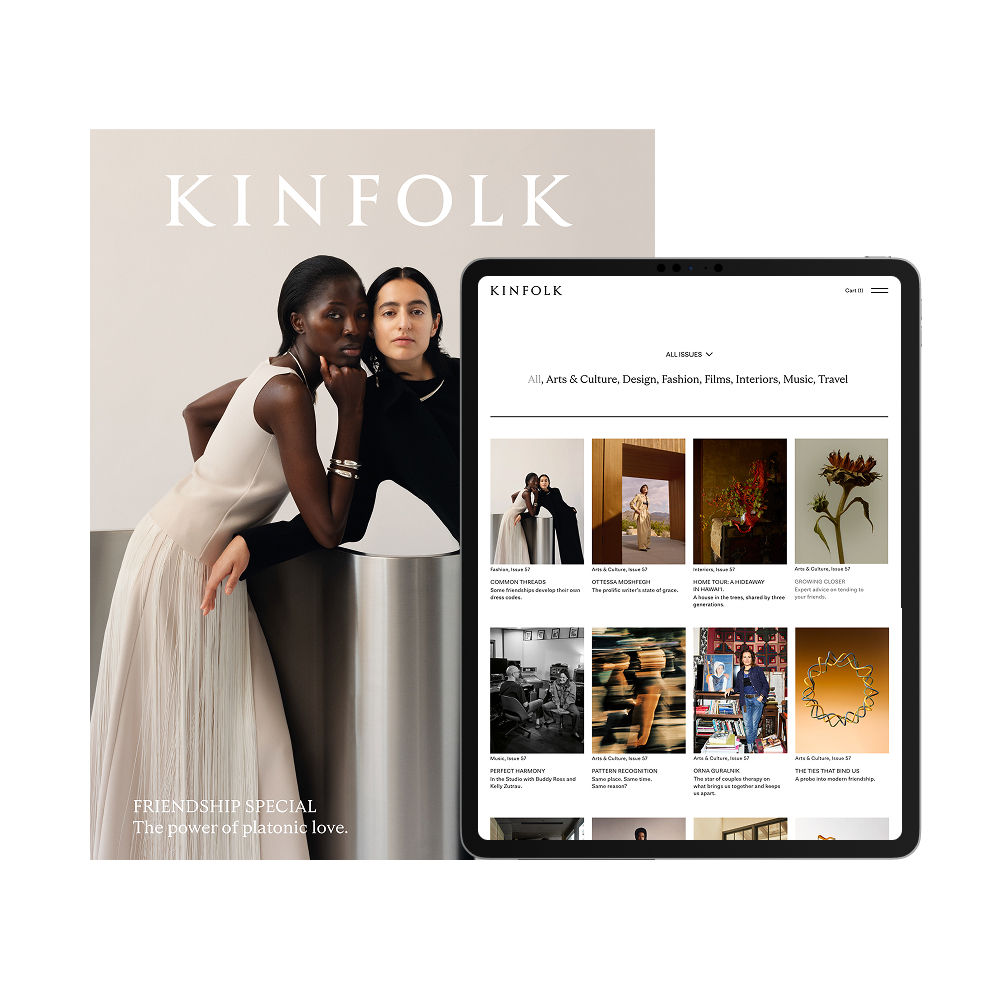Bring It on Home: Leon Bridges
From bussing tables to playing at the White House in under two years, Leon Bridges has no plans to part ways with his humble beginnings.
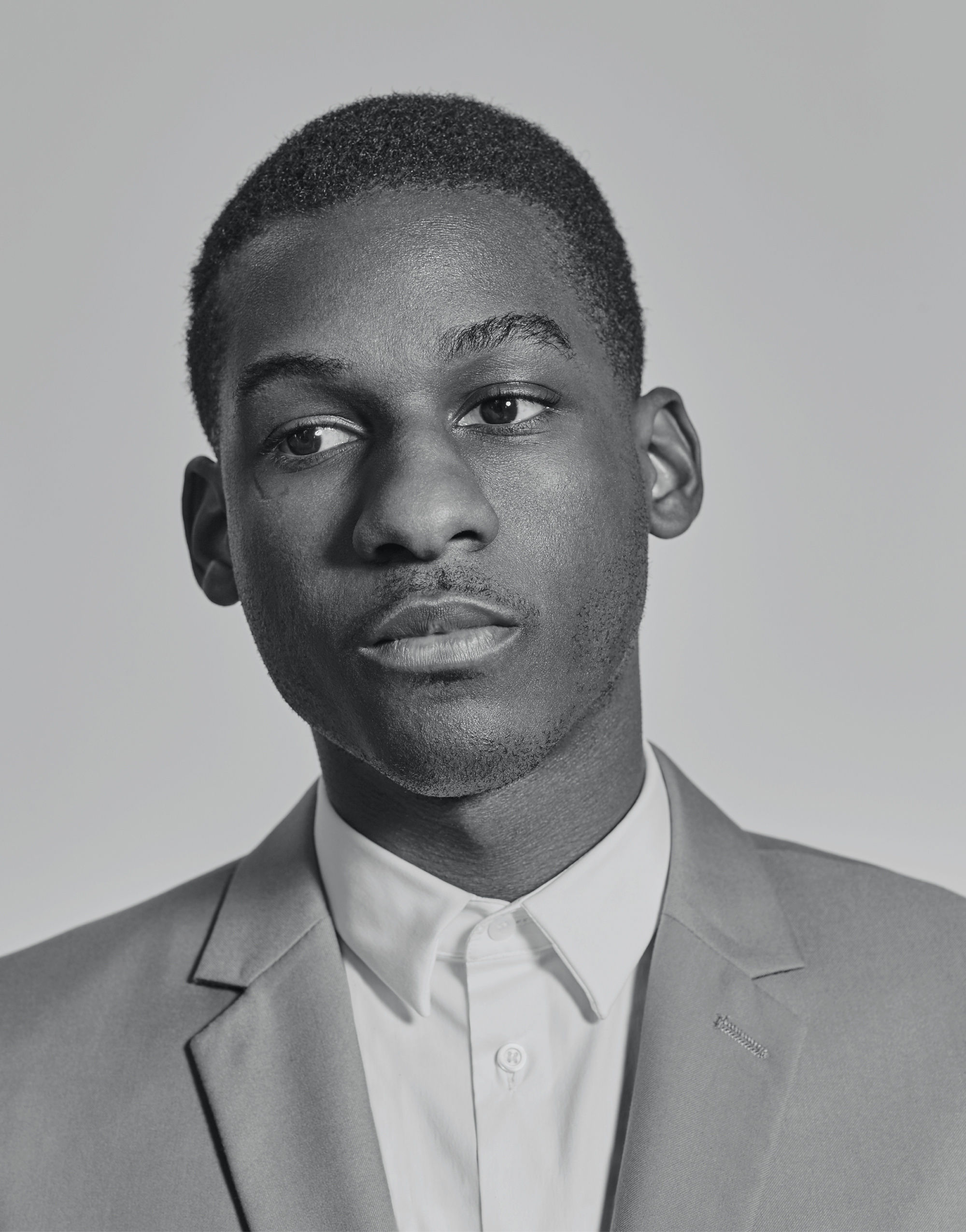
Suit by Topshop and shirt by COS
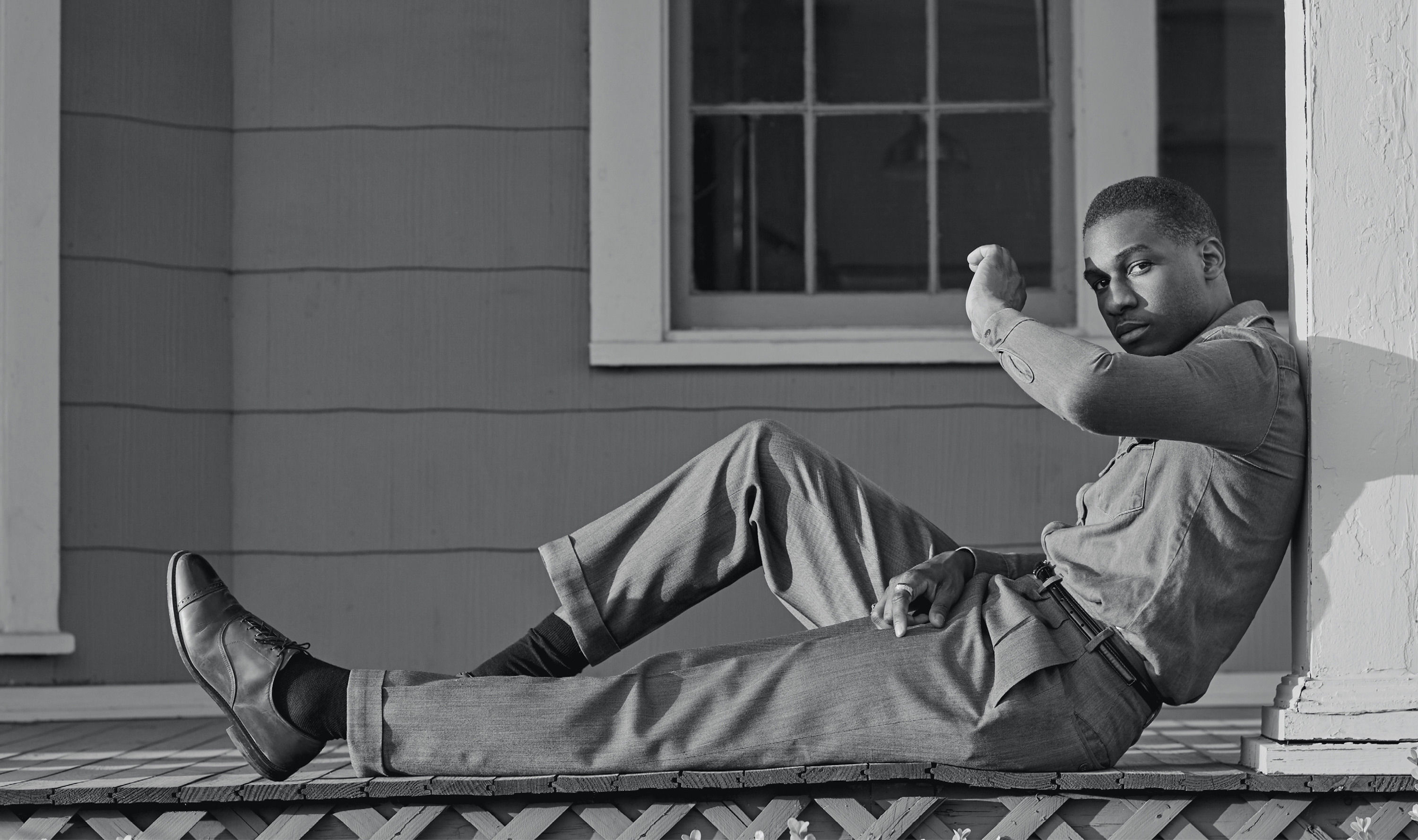
His own clothing
“I love showing the world our perspective on soul. We’re not doing a James Brown or a Daptone thing—it’s a Texan thing”
The hearsay is true: Leon Bridges really is one of the nicest guys in the industry. Born in Georgia to a Louisianan family, Leon lived in Atlanta and New Orleans until his parents moved him to Texas just before his third birthday. Twenty years later, a serendipitous meeting at a little honky-tonk in Fort Worth introduced him to friends and musicians Austin Jenkins and Josh Block, two Texan boys from the nearby towns of Weatherford and Waxahachie. The duo convinced Leon—who was dish-washing at the time and had never set foot in a professional studio—to come record with them, and the debut album they pieced together, Coming Home, was picked up by Columbia Records and eventually peaked at number six on the US charts.
Now 26, Leon recently played for President Obama at the White House and did a Lionel Richie tribute at the Grammy Awards with The Roots as his backing band. As a guy that could go anywhere, he has decided to stay put and set up shop in the town of Fort Worth, where he, Austin and Josh remain the best of friends as well as bandmates.
—
When did you guys all first meet?
Leon: I used to play sets every Tuesday night at this place called the Magnolia Motor Lounge—I’d get off work bussing tables and would run over there and play two or three songs in between the bands’ sets.
Austin: I was watching a friend’s band play, and after the first set Leon asked to borrow my friend’s guitar and got up on stage by himself and started performing. I still remember how I felt when I heard him break into the first song, which was “Coming Home”— it was completely life changing. It felt wonderful to hear someone singing like that with this vibe at a local bar on a Tuesday. When he finished playing, I forced him to talk to me near the bar…
Leon: … and then it got weird! When I first saw him, I was like, “Man, there is a glow about this dude.” I had never seen anybody with a cowboy hat wearing this kind of high-waisted Wranglers hanging around this little part of Fort Worth.
Austin: It was funny, because I realized that I had actually already met him a week earlier, but I had no idea that he played music then. We first bonded over—this is not a joke—pants. We were at a bar and my girlfriend at the time went up to Leon and said, “You have to meet my boyfriend. He also wears those insanely ridiculous high-waisted Wrangler jeans à la [country music star] George Strait.” We took a photo and talked, but we didn’t talk about music. Then a week later, I see him play, and I remember calling Josh and saying, “Man, you’re never going to believe what I just heard. You’ve got to check this guy out.”
Leon: Austin said, “Those were some great songs. Y’know, it’d be great to record—live, straight to tape, and let’s do it in the classic, old country, rhythm and blues style.” He left, and the bartender was like, “… d’you know who that was?” and I said, “… no?” And he said, “That’s Austin Jenkins from White Denim!” And I was like, “… who’s White Denim?”
Austin and Josh, by that stage in your career you had both done pretty well with White Denim. When the three of you started recording together, did it feel like a mentor/mentee relationship?
Austin: I’m not sure if we were mentors or anything…
Leon: That’s how it felt to me though. I didn’t have everything together, and I still don’t have everything together! I just had a bunch of these songs on acoustic guitar—I didn’t really know anything about the technical side of music, so it was good to have some people who have been around the block a few times to really steer me the right way.
Austin: It was kind of perfect timing on our end. Josh and I had been talking about putting a studio together and working with people for about a year prior to that. It was a really cool marriage of ideas, and it was equal footing in terms of excitement—everyone was really engaged from the start. We put a studio together in a day and recorded as many songs as we could in four days.
Josh: I don’t think I had made music with somebody who had such a healthy lack of cynicism around other musicians as Leon did—he had such a great nature. So from our point of view, there was a lot for us to learn too. Musicians end up getting pretty strange heads after a certain number of years, so it was nice. The mentorship definitely went both ways.
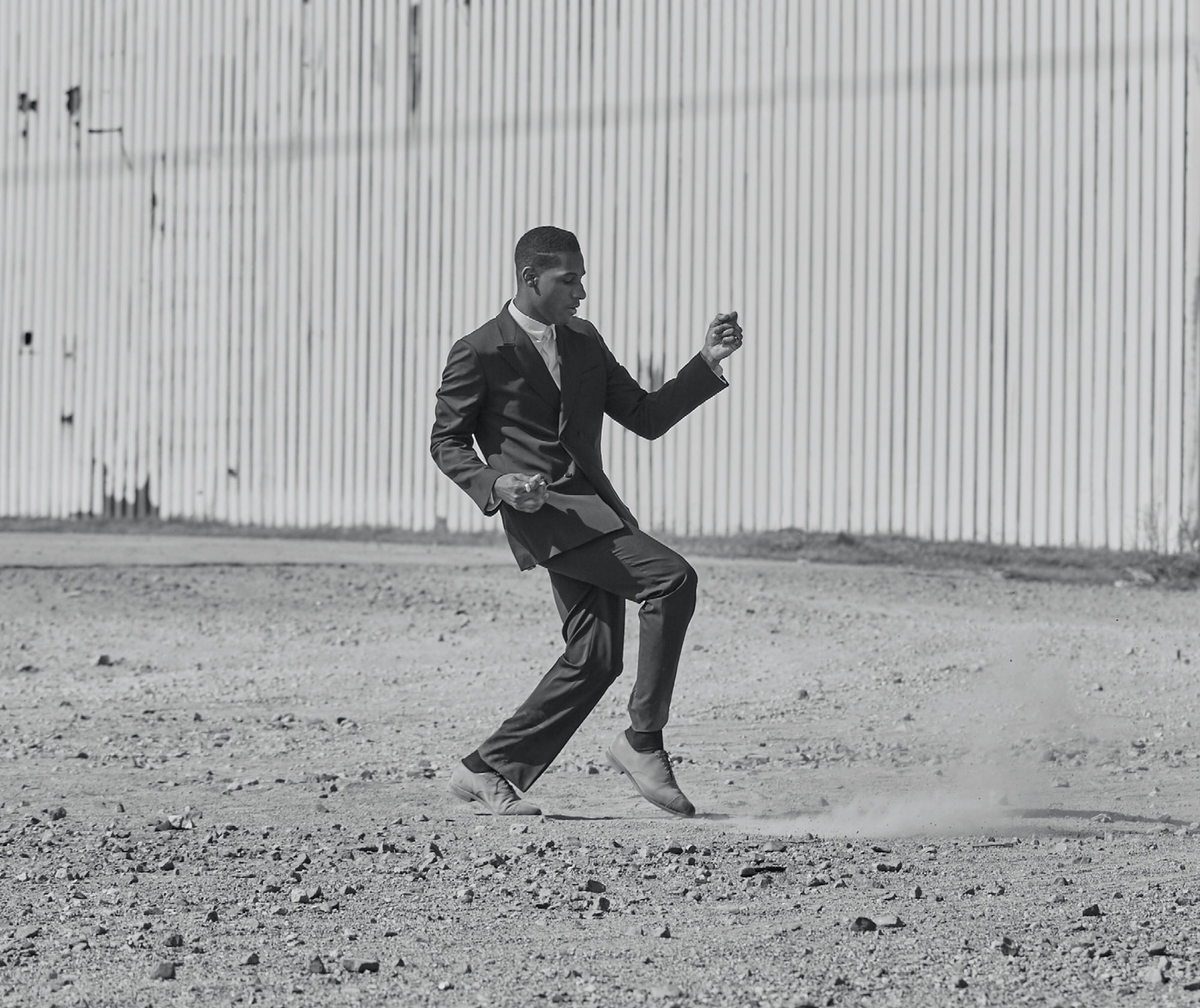
Suit by Sandro, shirt by COS and his own shoes and socks
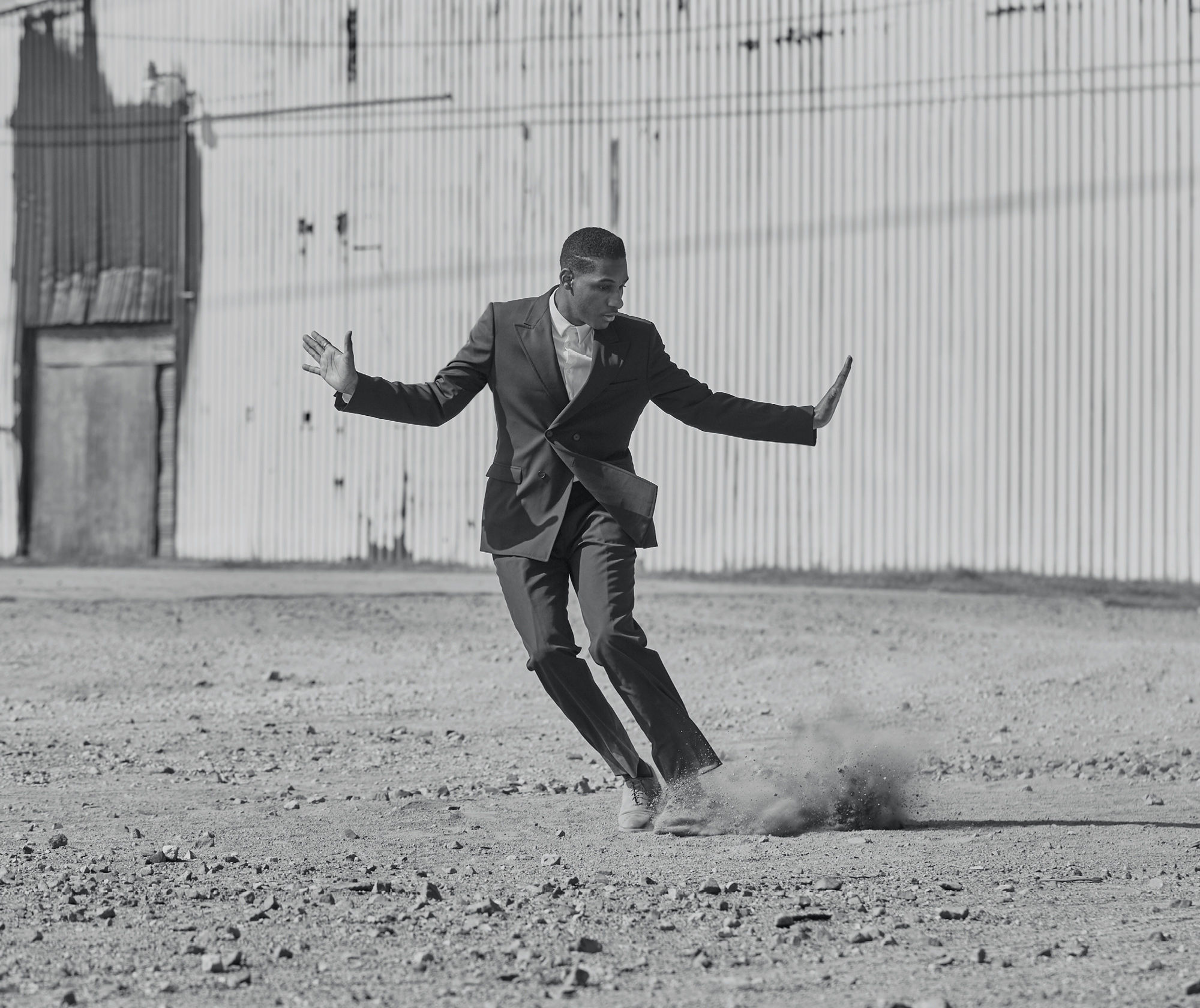
Suit by Sandro, shirt by COS and his own shoes and socks
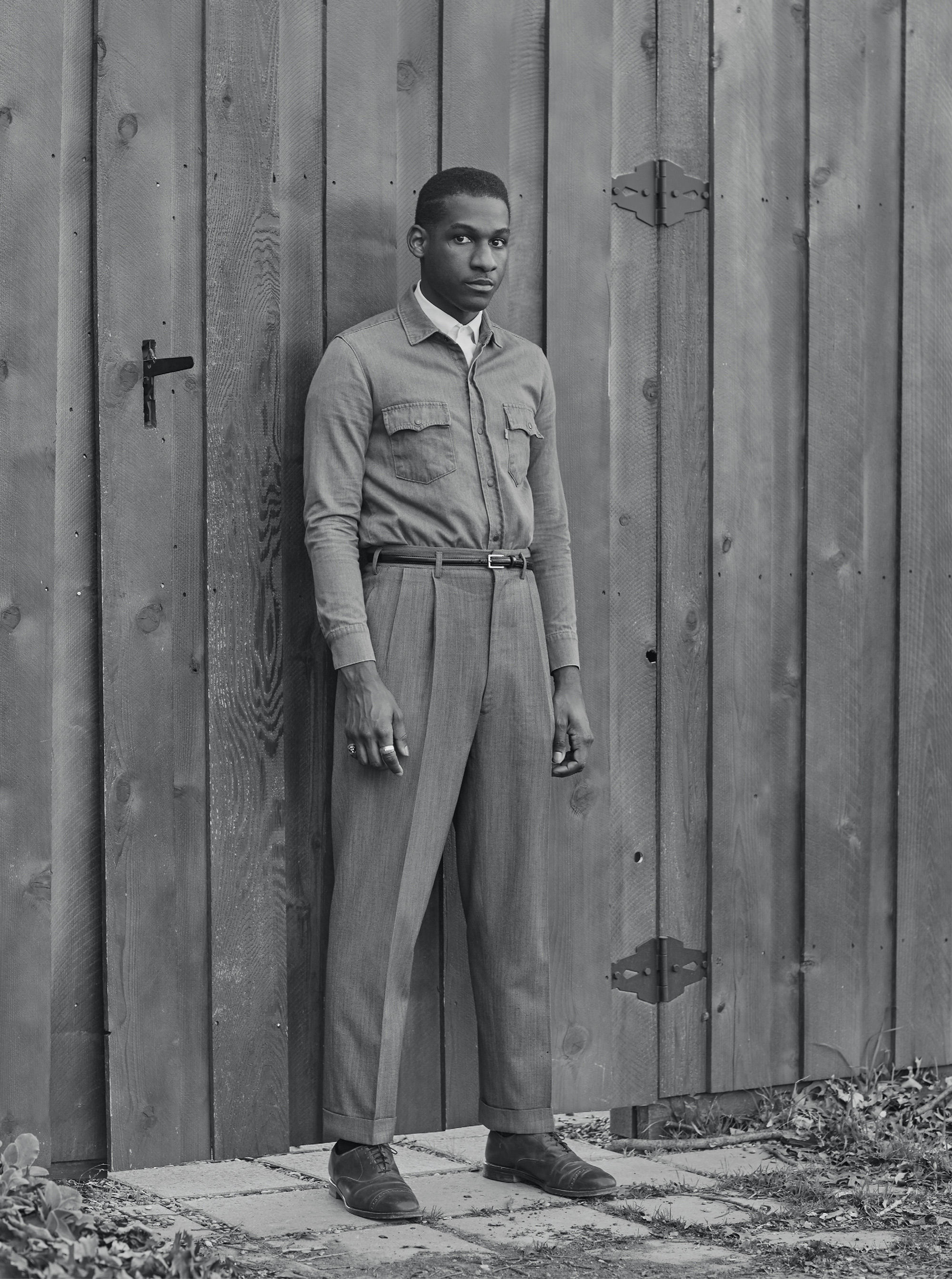
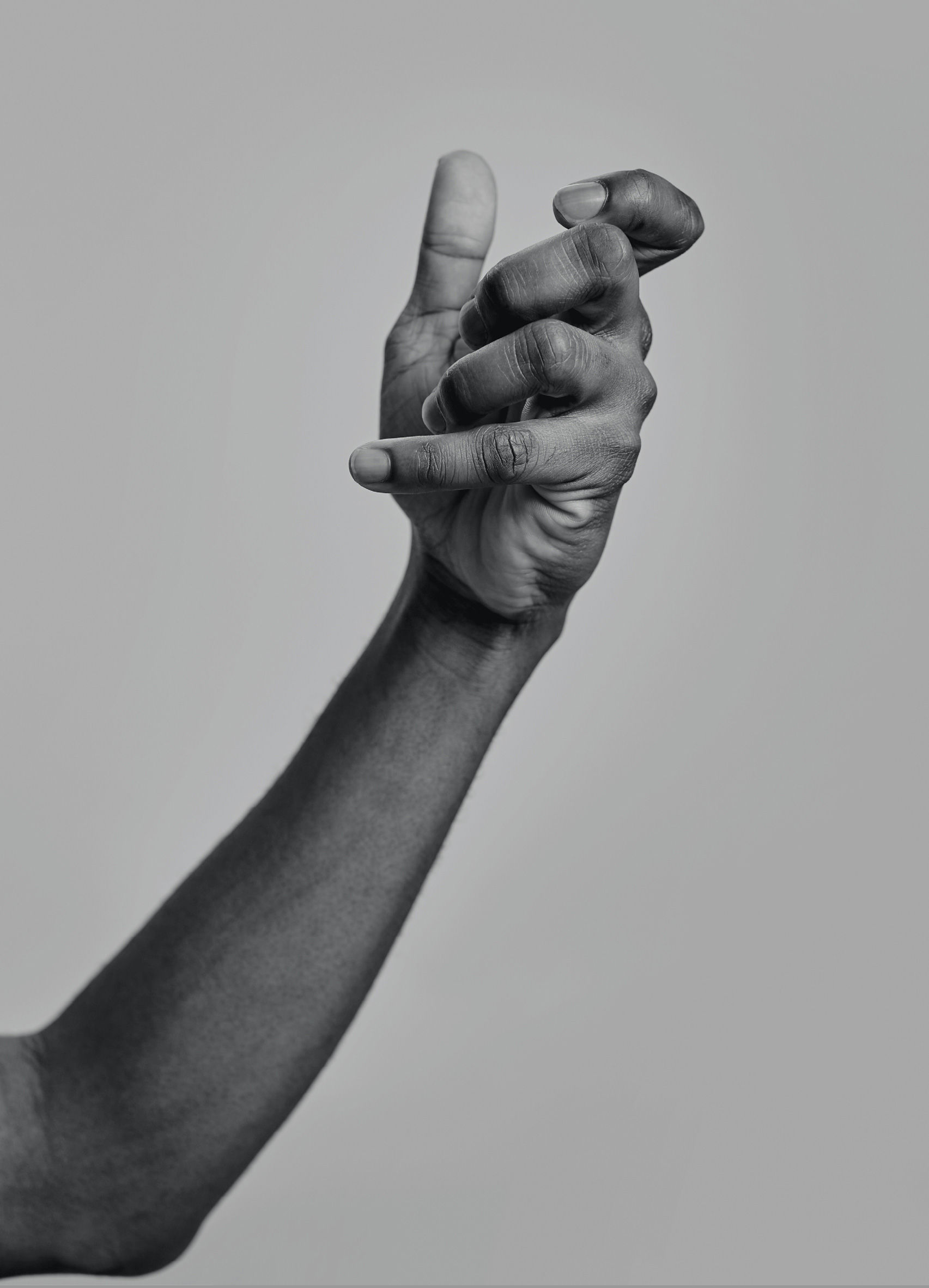
It sounds like the three of you filled in the things in each other’s lives that had been missing before that.
Leon: Definitely.
Austin: Yeah, that makes a lot of sense. There’s definitely a symbiosis of all those ideas there. Different people have different strengths and weaknesses… The best part about it is when you form a team, trust people and are genuinely excited about working together, everything else irons itself out.
Have you ever thought about what would have happened if someone that night had said, “You know what? Let’s just stay in tonight and order a pizza?”
Leon: You know, I think it would’ve possibly happened, but it wouldn’t have happened in the right way—we might’ve recorded in some modern studio instead. So it all was meant to be.
Josh: When we got in the studio together, we weren’t thinking dollar signs: We were thinking, “This is a community.”
Austin: That’s what the whole recording process was about. We had no idea that it was going to turn into a record that Columbia would release! We were doing it because I believed in Leon’s music, Josh believed in Leon’s music and, most importantly, Leon believed in Leon’s music. It was pretty wild.
Austin and Josh, you two have opened up your own full-time recording studio in Fort Worth called Niles City Sound. Is it fully operational now?
Josh: Rockin’ and rollin’!
I’ve heard the public can go in and watch sessions live, and you can also record straight to broadcast, which was quite common in the’60s—people in that era used to listen to and experience music in a much more open, communal way. Did you consciously try to mirror that model when you were building your studio?
Austin: Yes, that was the initial idea behind it. Josh and I had talked about making the studio similar to a local Western thing called The Big D Jamboree, which was a ’50s radio program that specialized in local talent and touring artists who would come through and want to be part of a radio show. They’d have live, straight-to-broadcast concerts so that people who couldn’t be at the gig could be listening. That was the impetus for the studio, and we still try to keep that same ethos.
In opening Niles City Sound, you’ve invested a lot of time and energy into Fort Worth, which means you’re probably going to be sticking around for a long time… You’re proving that people can break the mold and make music careers outside of major cities.
Austin: That’s the whole point—and I think that’s the movement in a lot of places right now. You don’t have to move to New York, London, LA or take your briefcase to Nashville to show off those ideas! You can create a little hub like this. We either really believe in that and love Fort Worth… or we’re completely insane.
Leon: I wouldn’t knock anybody who wants to move out of their hometown and make things happen, but I think it’s more cool when you stay where you are. For me, I couldn’t move out because, even if I had wanted to, I didn’t have the money. So it was about staying in town, grinding and doing the open mic thing.
If the environment you’re craving isn’t where you are, instead of going out and seeking it elsewhere, create it.
Austin: I love that. Someone once told me that if you’re not happy where you are, moving doesn’t solve that. You can make something wherever you are. The best way to affect change is within the community you’re in. It’s such a nice way to reach people because it’s folks you’re going to be working with or seeing on a daily basis. It’s nice to get to know those people and have that kind of kinship.
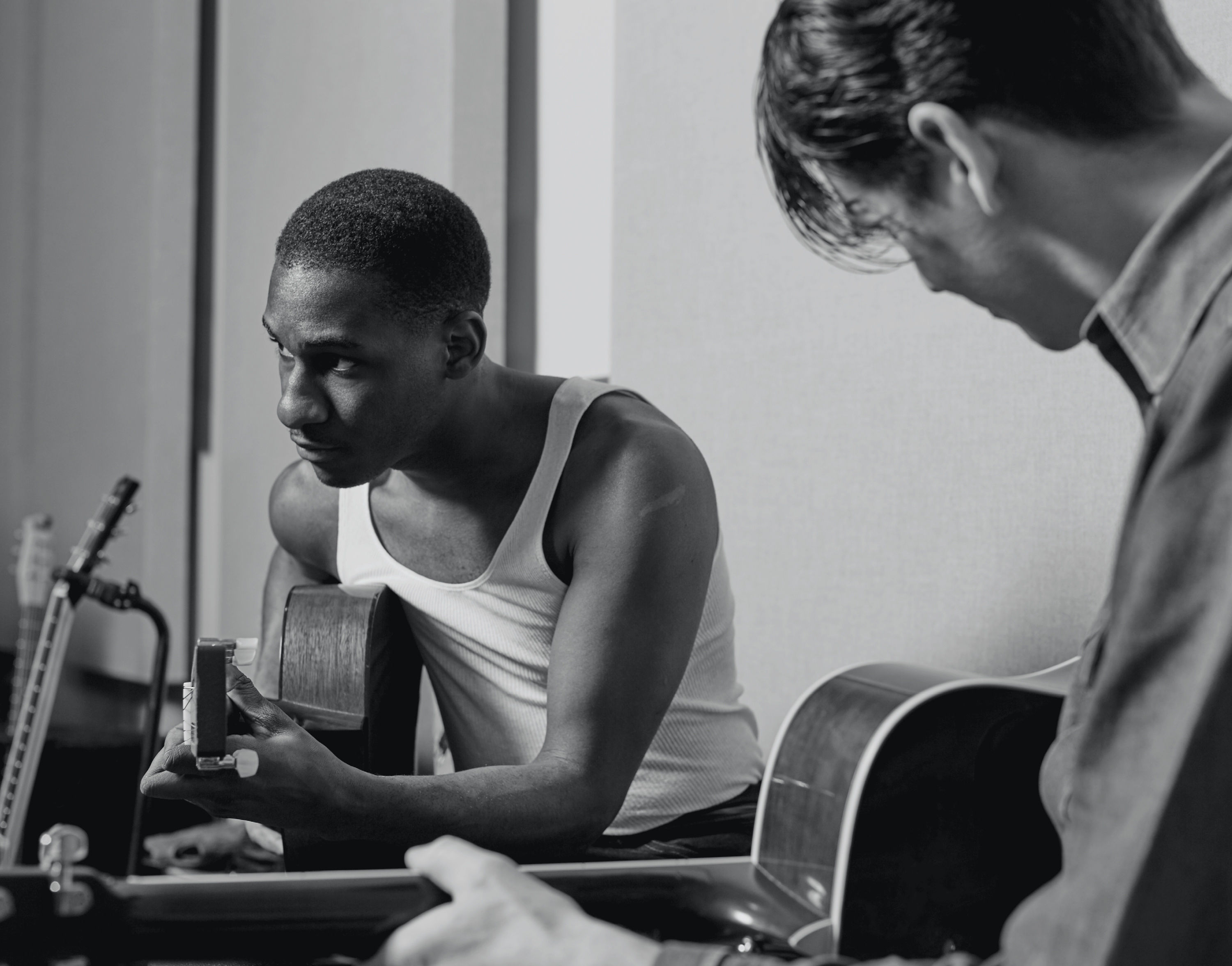
Jeans by Levi’s and his own singlet
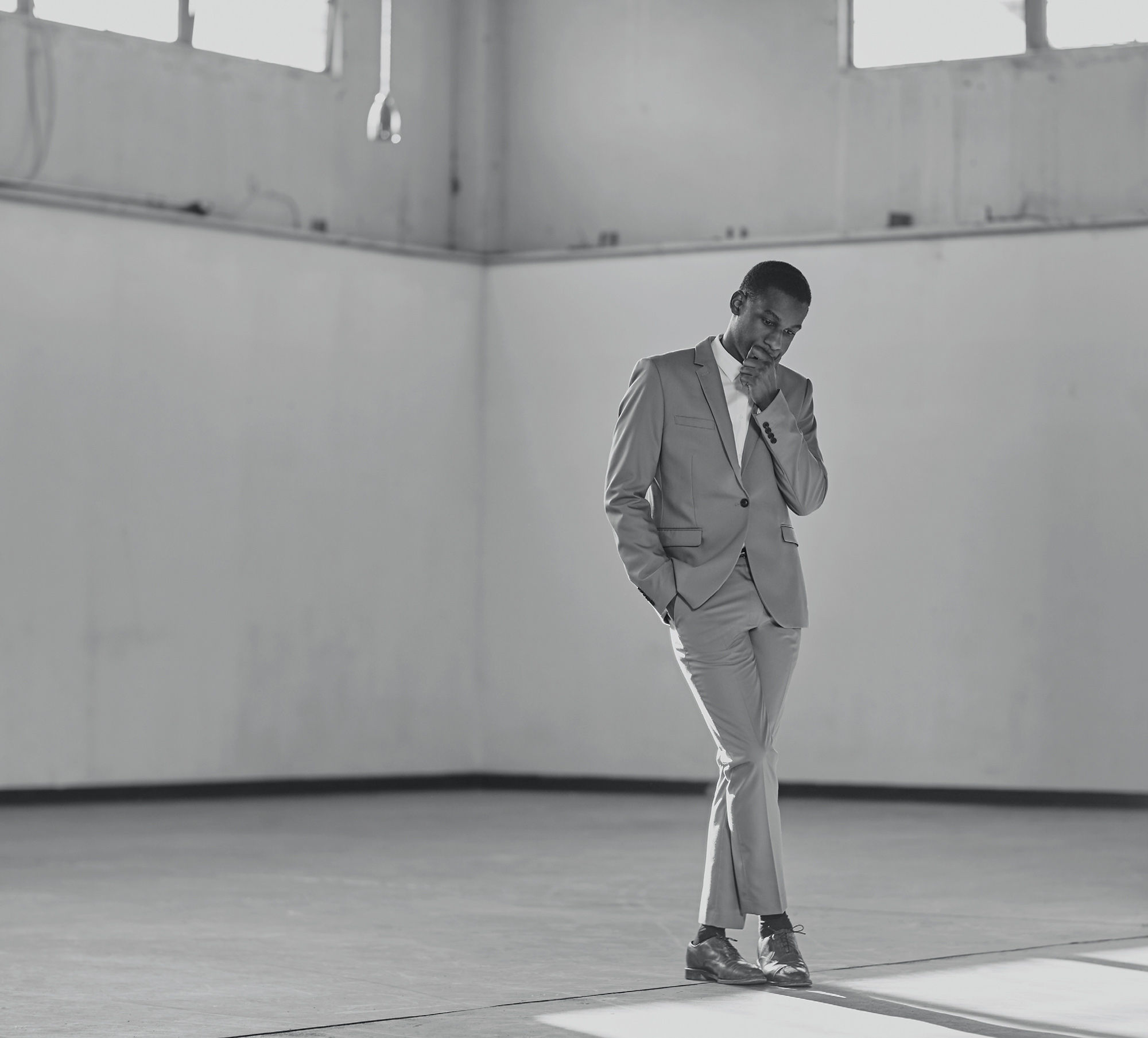
Suit by Topshop, shirt by COS and his own shoes and socks

Shirt by COS, trousers by Sandro and his own shoes and socks. Austin and Josh wear their own clothes throughout.
How would you describe Fort Worth?
Austin: There’s a laid-back sense of independence in the city. It’s always been a place where there’s art and culture and music and cuisine, but it’s also always been a place of ranching and farming communities where people make a living doing what they want to do and living on their own terms. It has a really nice blend of those kinds of properties.
Leon: For me, I love it because I get to come back, go to the same places and reminisce about them. It keeps me grounded.
Leon, you hadn’t ever been outside of America before all this happened. After leaving Fort Worth and touring so much, how do you see home differently?
Leon: I definitely miss home. I go to all these different places and meet different people and am the star of the show, so I look forward to being back home where it’s low-key and I don’t have to be “Leon Bridges” anymore. When I’m home, I don’t do anything—I just sit on my couch and watch cartoons! It’s always a joy on that last day of tour, knowing I’m coming back home and I get to roll down the street and see my ’migos.
Which other communities outside of the music world also mean a lot to you?
Austin: You’re gonna be hard-pressed to find a Texas boy from around here that didn’t do his due diligence in a church community! That was some of the first real music I sang and heard. It’s a big part of the culture here, especially in the small towns. I feel like Leon and I bonded over that.
Leon: Living in the Bible Belt, the church community was the first time I felt like a part of something or had friends, so I’ve taken that with me—that’s how I want everything to feel like when I’m on the road. It’s great that the whole band knew each other from Fort Worth before this popped off.
Fuzzy tour vibes aside, the music industry can be pretty exclusive sometimes: Have you ever been made to feel like an outsider?
Leon: What we’re doing is different in a way, so you have some who love it and some who criticize it. Like, some people criticize the fact that I have a mostly white band, and I had somebody else recently ask, “Why are you wearing cowboy hats?” Well, we’re from Texas, you know? It’s just who we are! We’re coming from Fort Worth, and we’re doing soul music—I love showing the world our perspective on soul. I could easily get on the mic and start screaming like a preacher and get everybody riled up, but the way I do things is subtle. We’re not going to do a James Brown thing or a Daptone thing—it’s a Texan thing. Even if The Roots came to me and told me they wanted to be my band, I wouldn’t do it. And it’s about more than me just being loyal: These guys are super badass players, good people and some of my best friends.
Austin: It’s really so top-down with Leon: His grace, vibe and humble spirit is completely apparent. As soon as you talk to Leon, you get it. The only criticism we’ve ever weathered has been purely speculative and has come from people who have never met us. The crew feels good. The sound guy feels good. The band feels good. The management feels good… because Leon is good. It’s a really simple principle, but it’s transitive property—it gets passed along.
Leon: It’s cool—the criticizers will figure it out eventually. When I started this thing, I wanted to carry all my heritage. This sound is something my people started—but not only black people are entitled to soul music. Some people say that I’m alienated from my black audience, but I’m not putting a sign out telling my people not to come, you know? It is what it is. It just takes time, and I’ve already seen our audiences getting more diverse. This is the type of thing I wanted to pursue and this is what brings me joy to make, so this is what I’m going to continue to do. Our goal is to make good music.
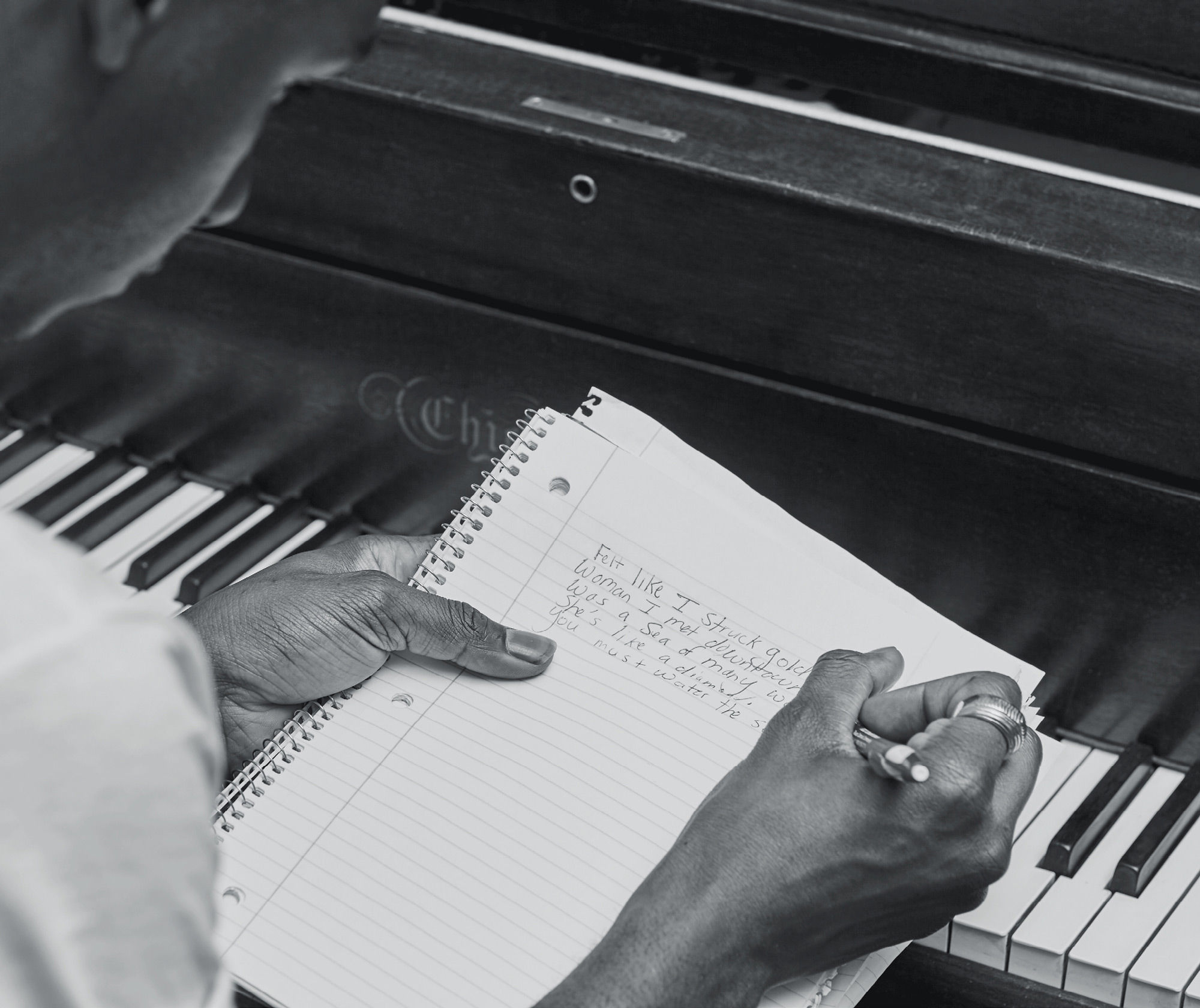
Vintage shirt and his own jewelry
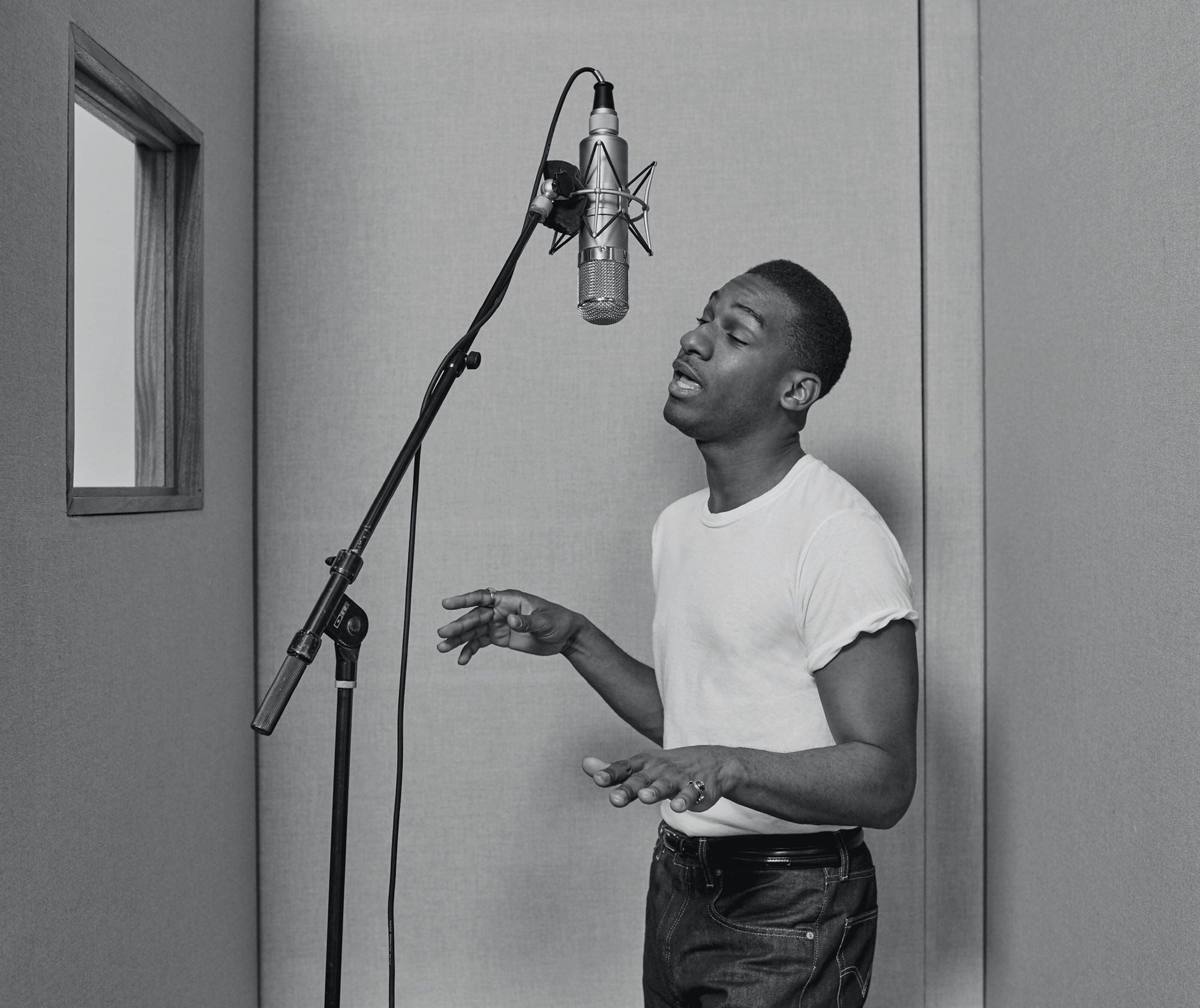
Vintage shirt, jeans by Levi’s and his own jewelry
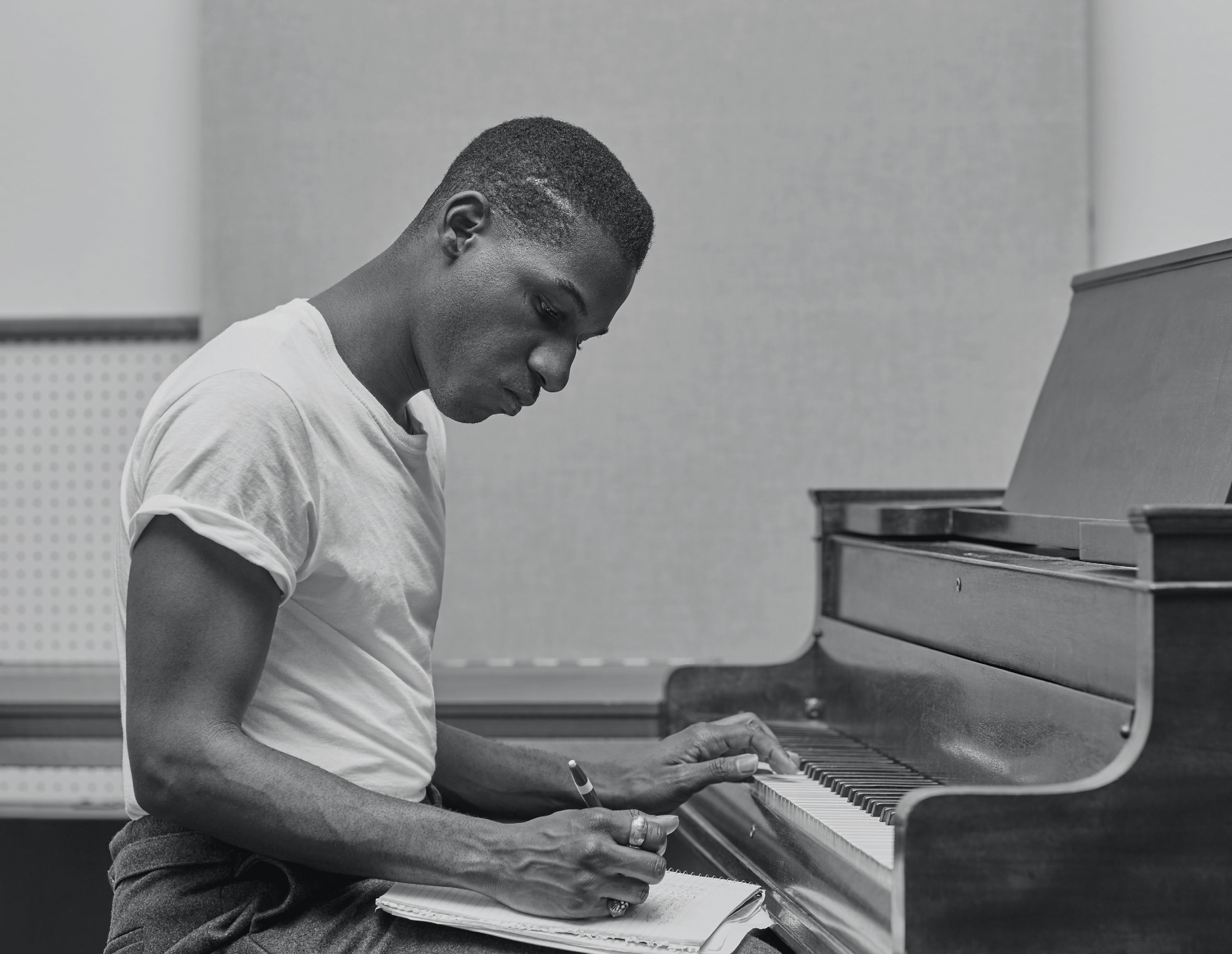
Vintage shirt, trousers by Topshop and his own jewelry

Jeans by Levi’s and his own singlet, shoes and socks
Leon, I’ve heard whispers that you’re still known to busk every now and then around town.
Leon: Yes, it’s very true! I always look at it as never being too good to not still be playing on the street. I was in Dallas recently and there were these homeless guys busking—I recognized that people had worked out who I was, so I thought it’d be cool to sit down and play with them. At the end of it, there was a hundred bucks in there! I love music: This is how I was before I got famous, and I’m still that person. When I’m on the subway in New York, I’ll still pull out my guitar and start playing. I’m always touring, so it’s just beautiful for me to get back to my old acoustic ways, because I don’t get to do that much.
Well, now that you’re back home before jetting off again, how are you going to spend one of your last quiet nights in Fort Worth?
Austin: I’ll probably keep it pretty low-key—we don’t have very much time at home, so it’s nice to get that restful thing happening.
Leon: I’m boring when it comes to time off! After this, I’ll probably be on my couch with Netflix fired up. We’re in the process of finishing some new songs that we’re going to add to the set on this next tour. We want to make it bigger and better—we’ll probably have some pyrotechnics here and there…
And a little bit of James Brown?
Leon: Yeah, I arrive on stage in a Hummer. Just kidding…
